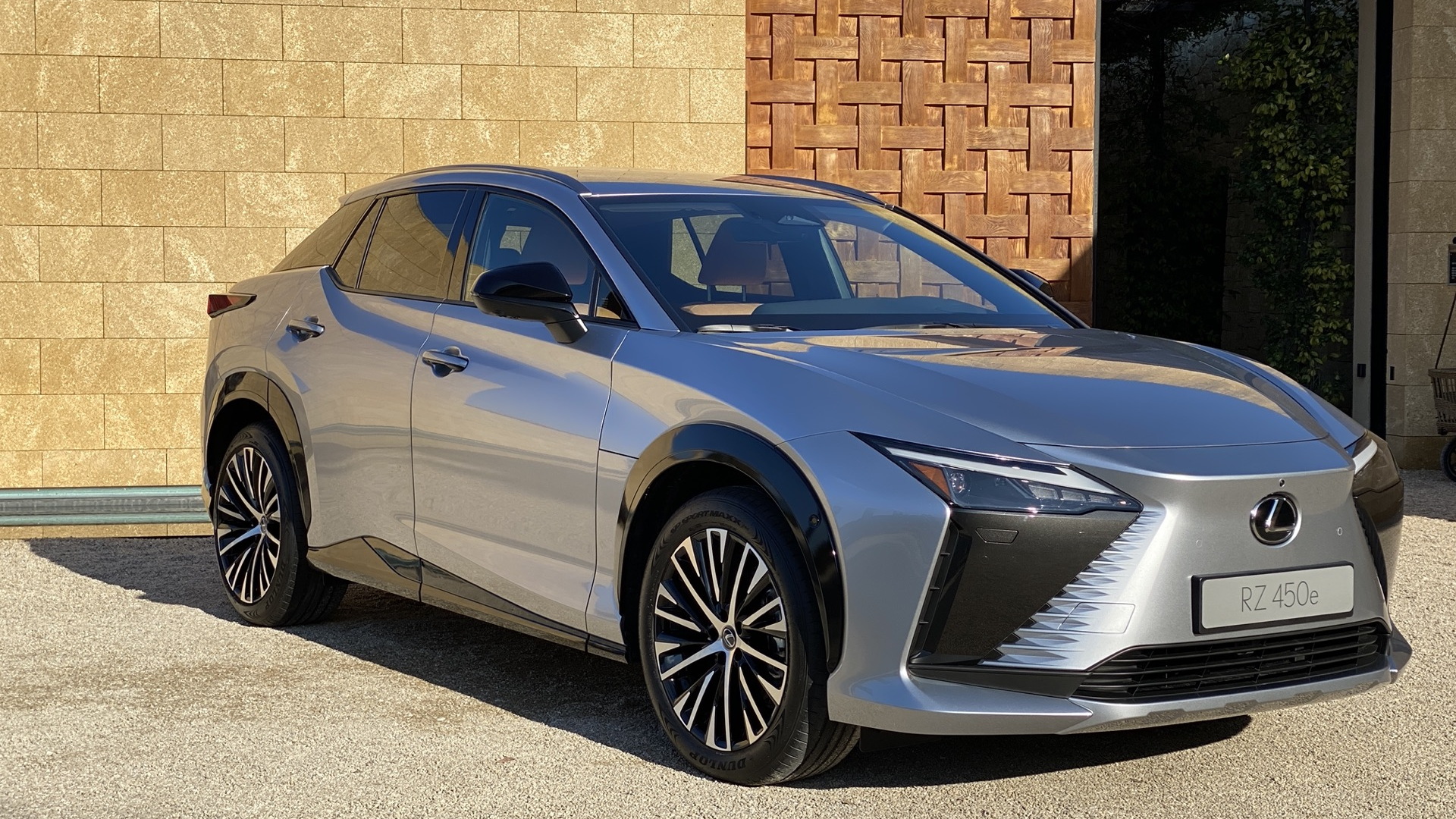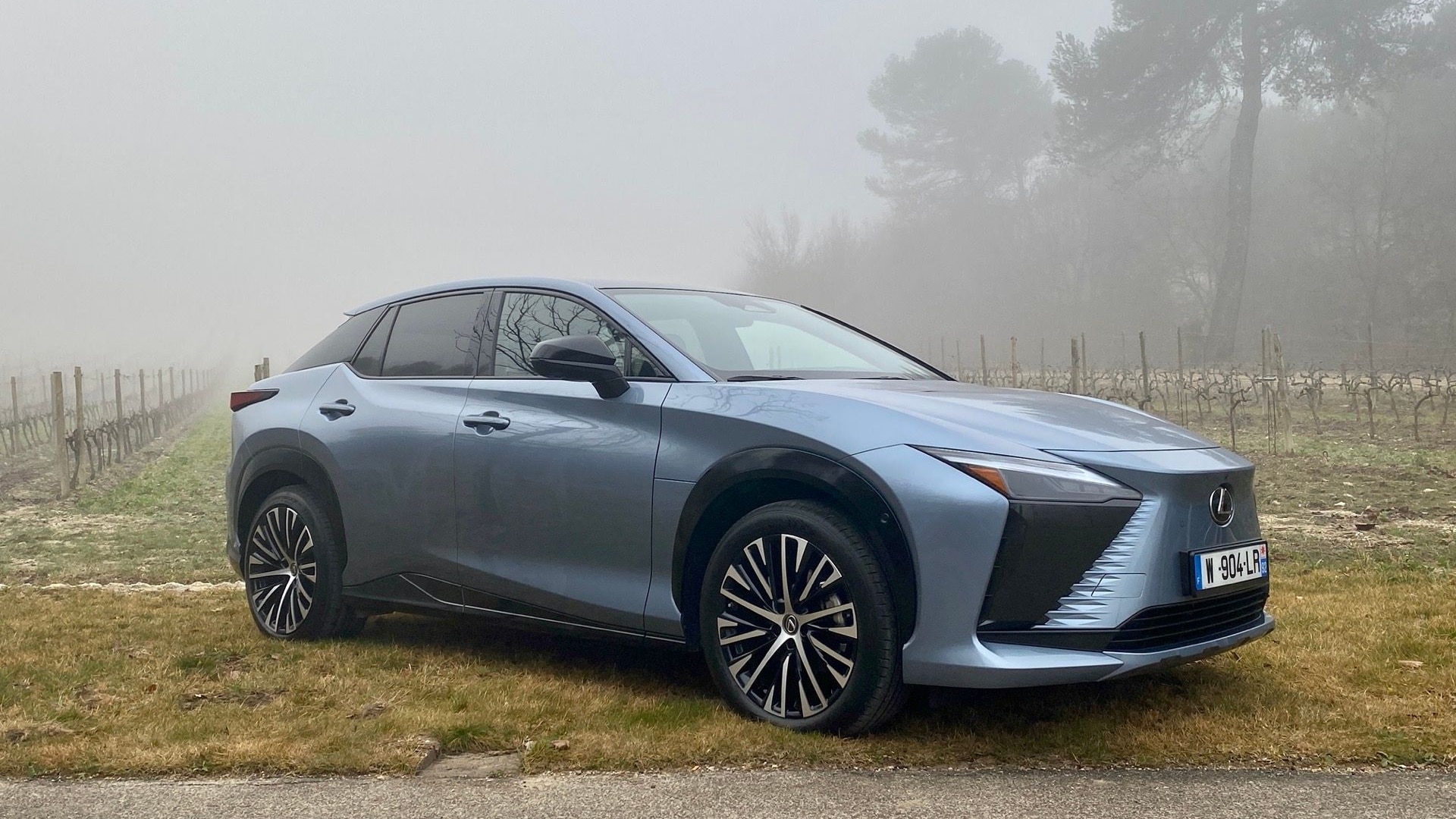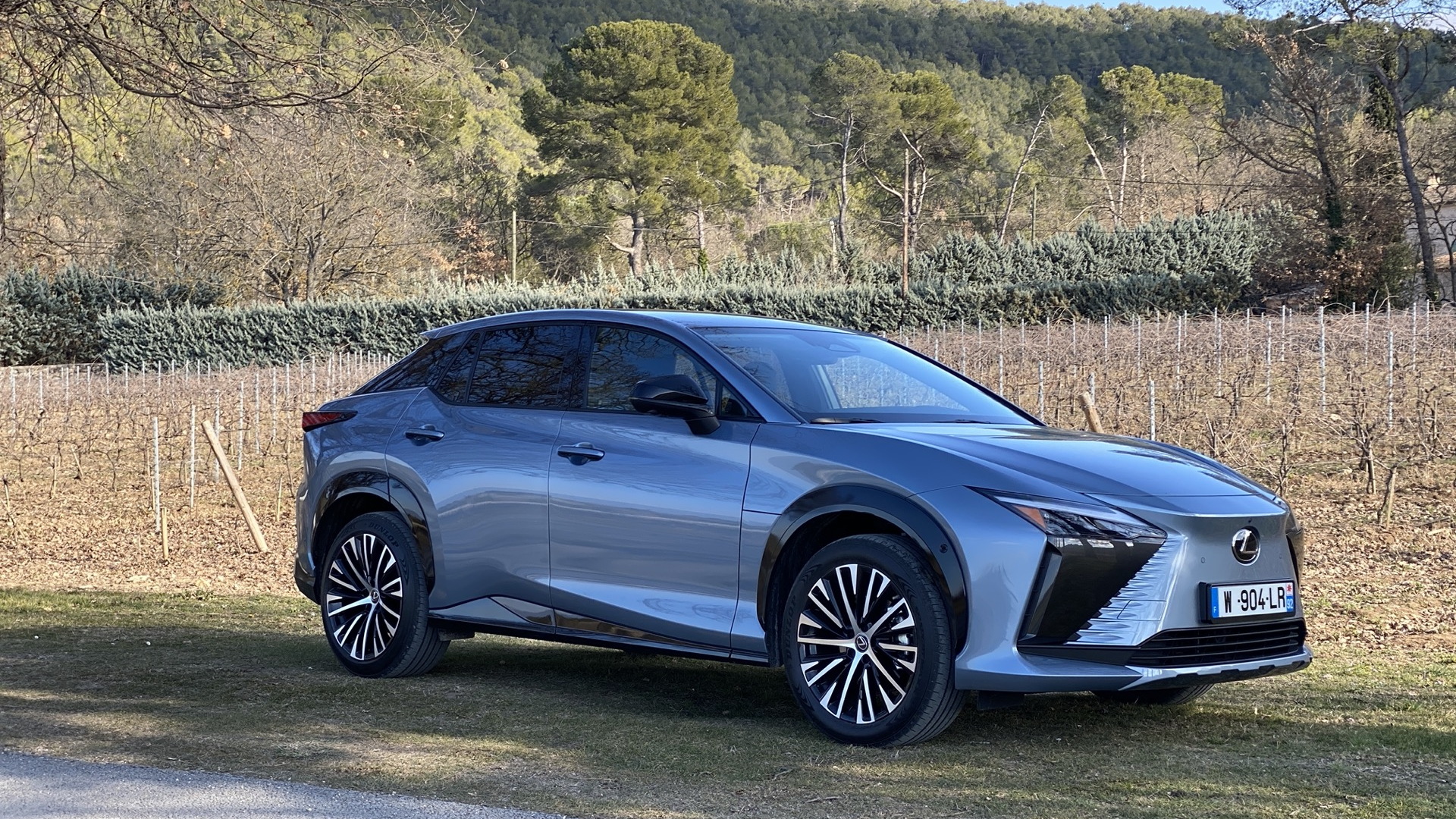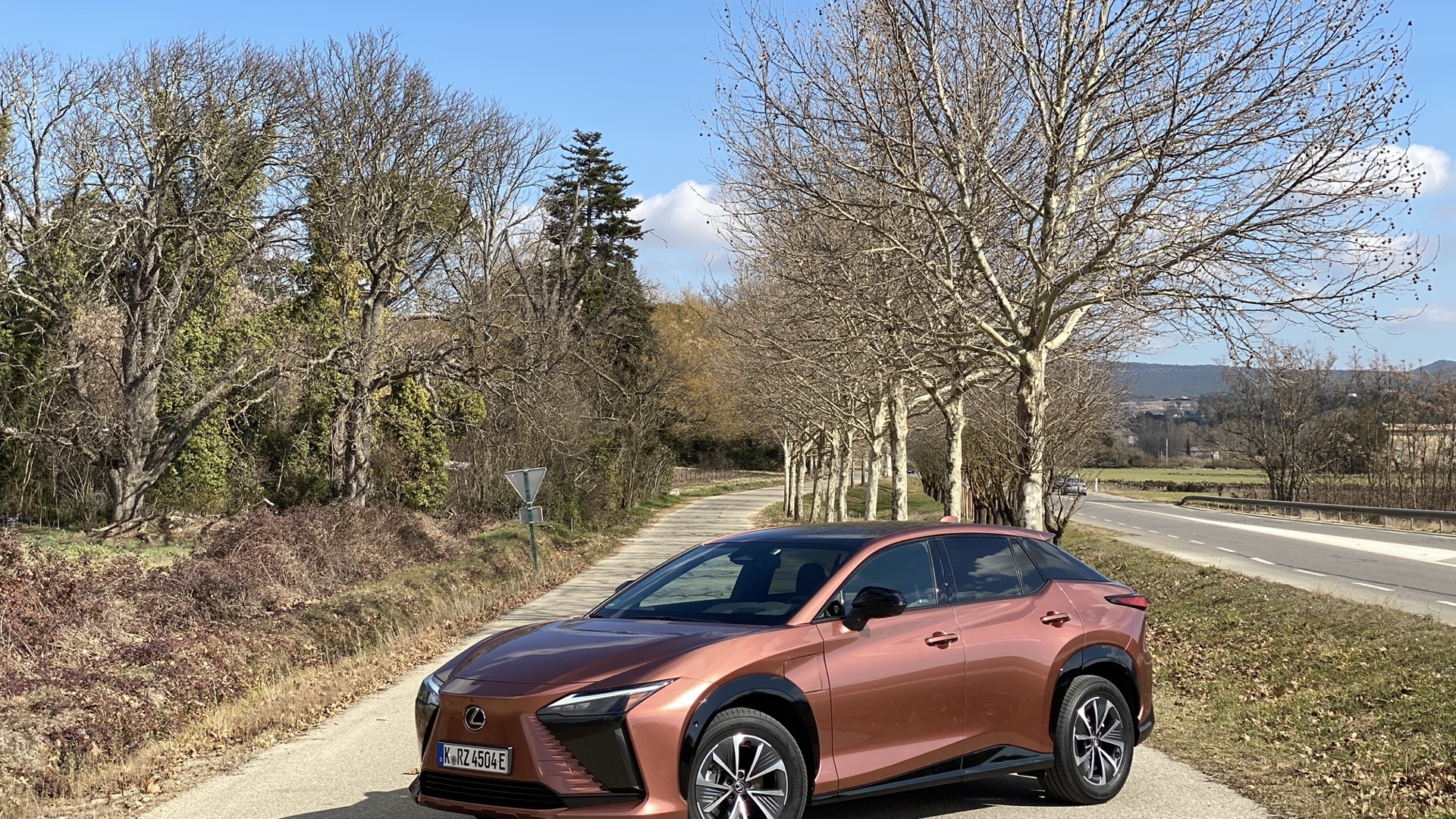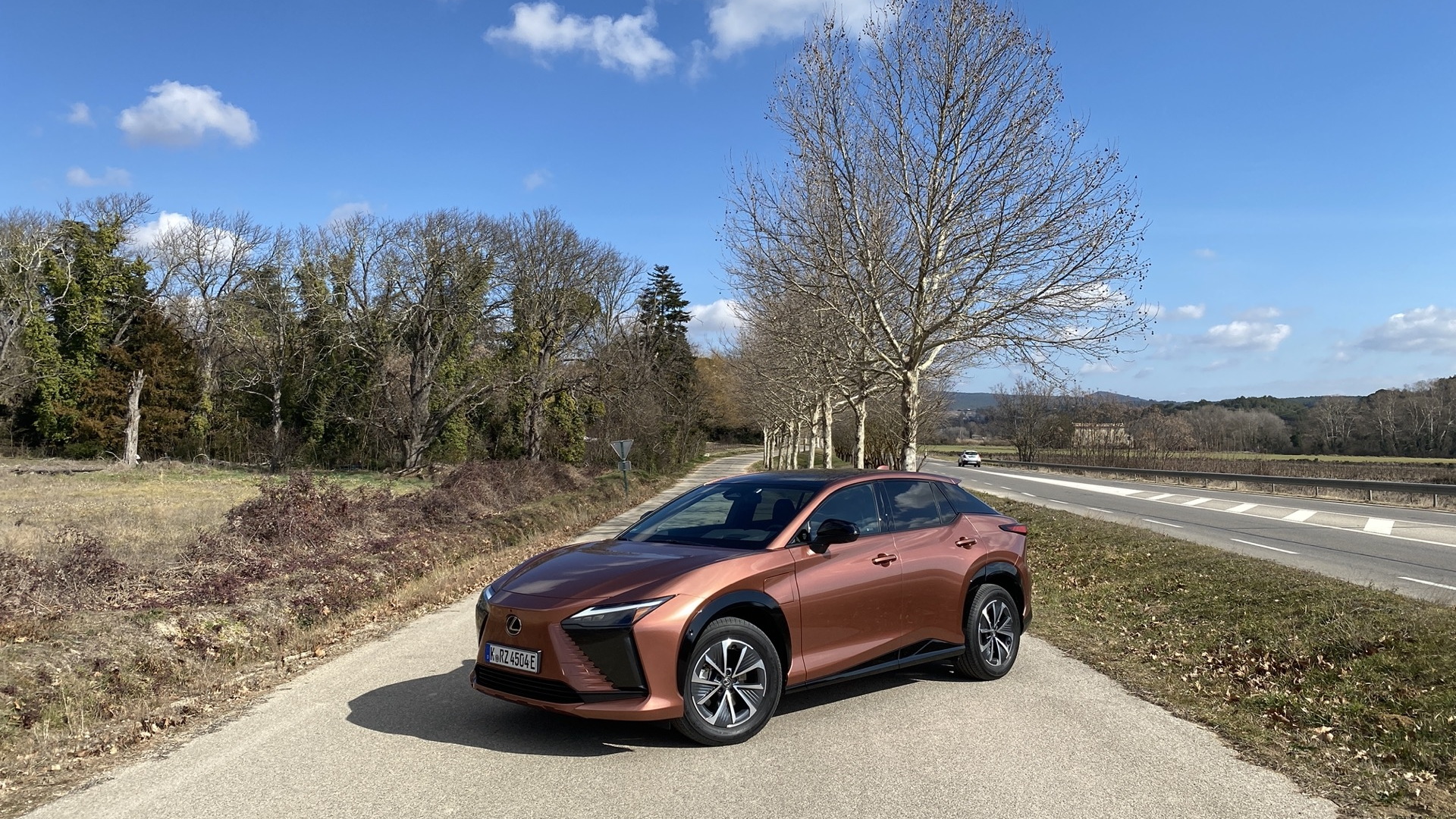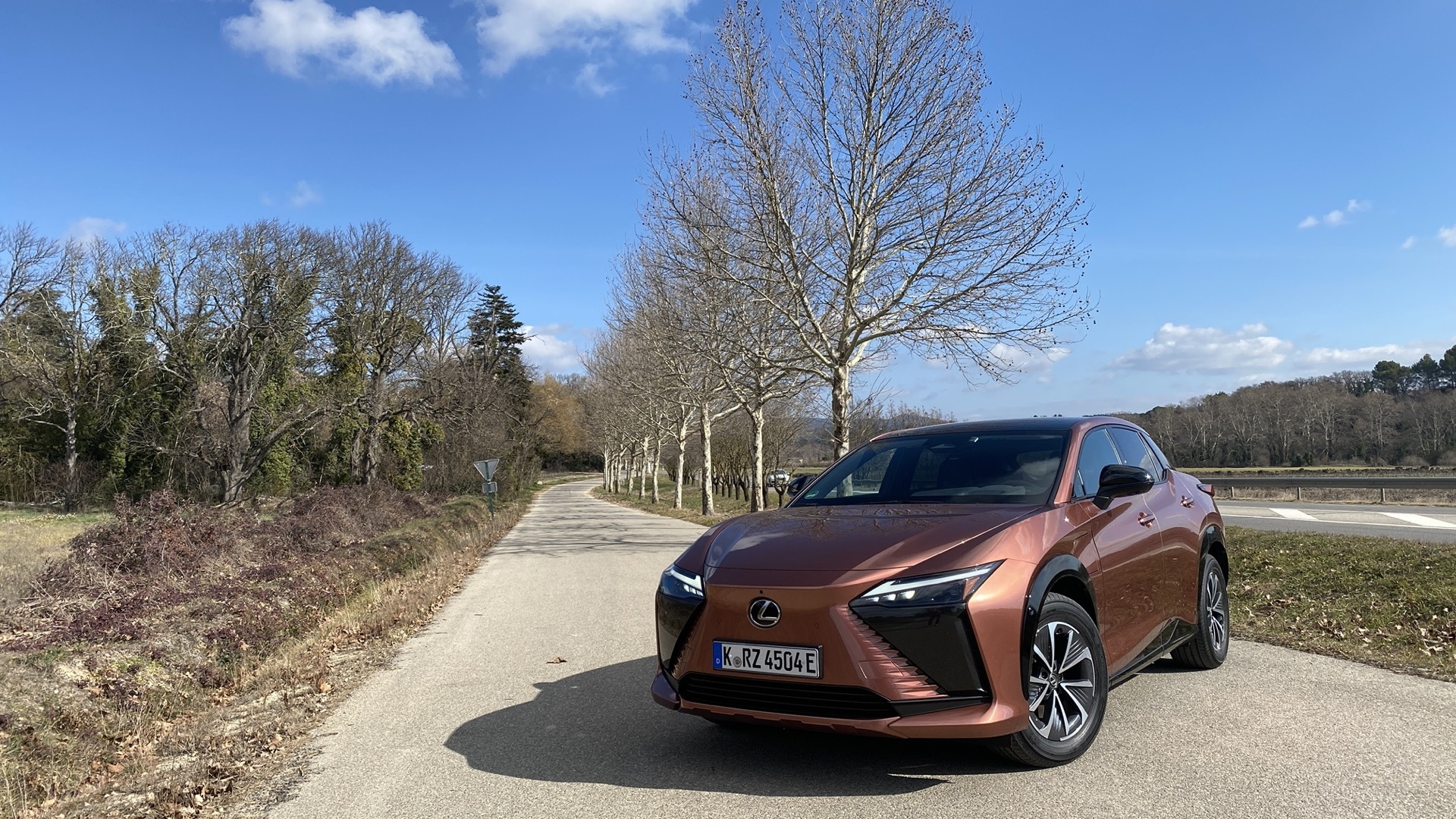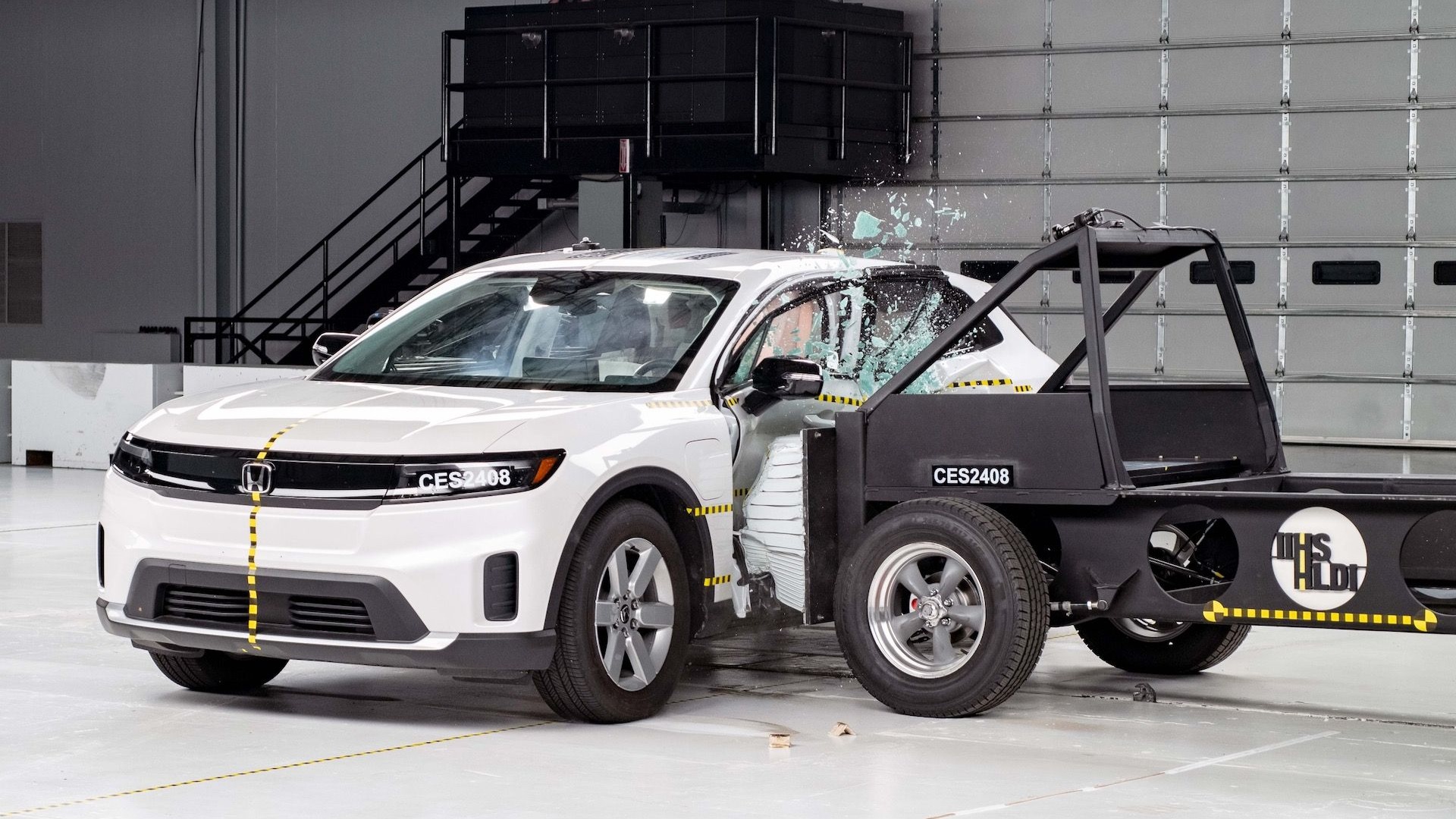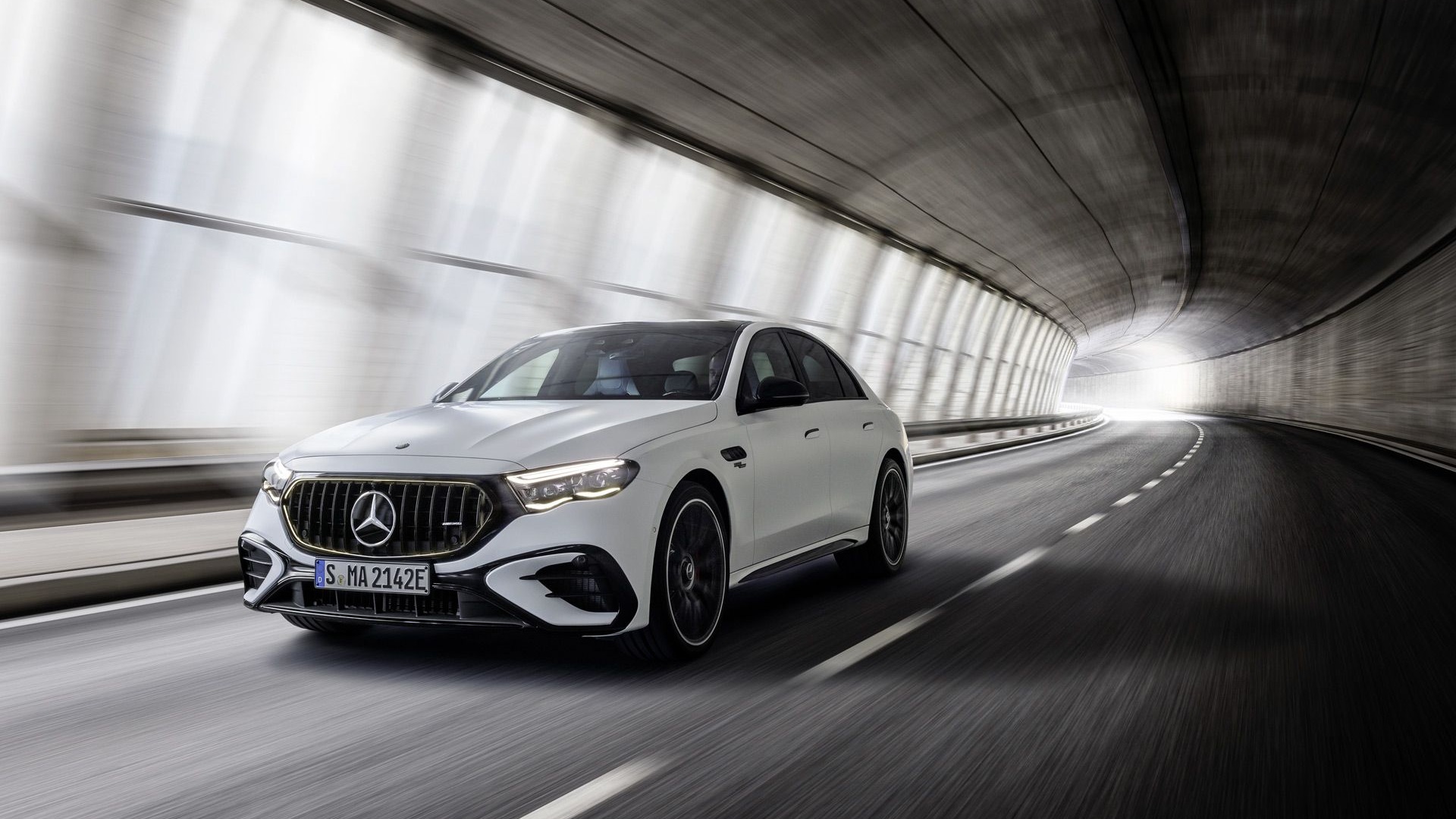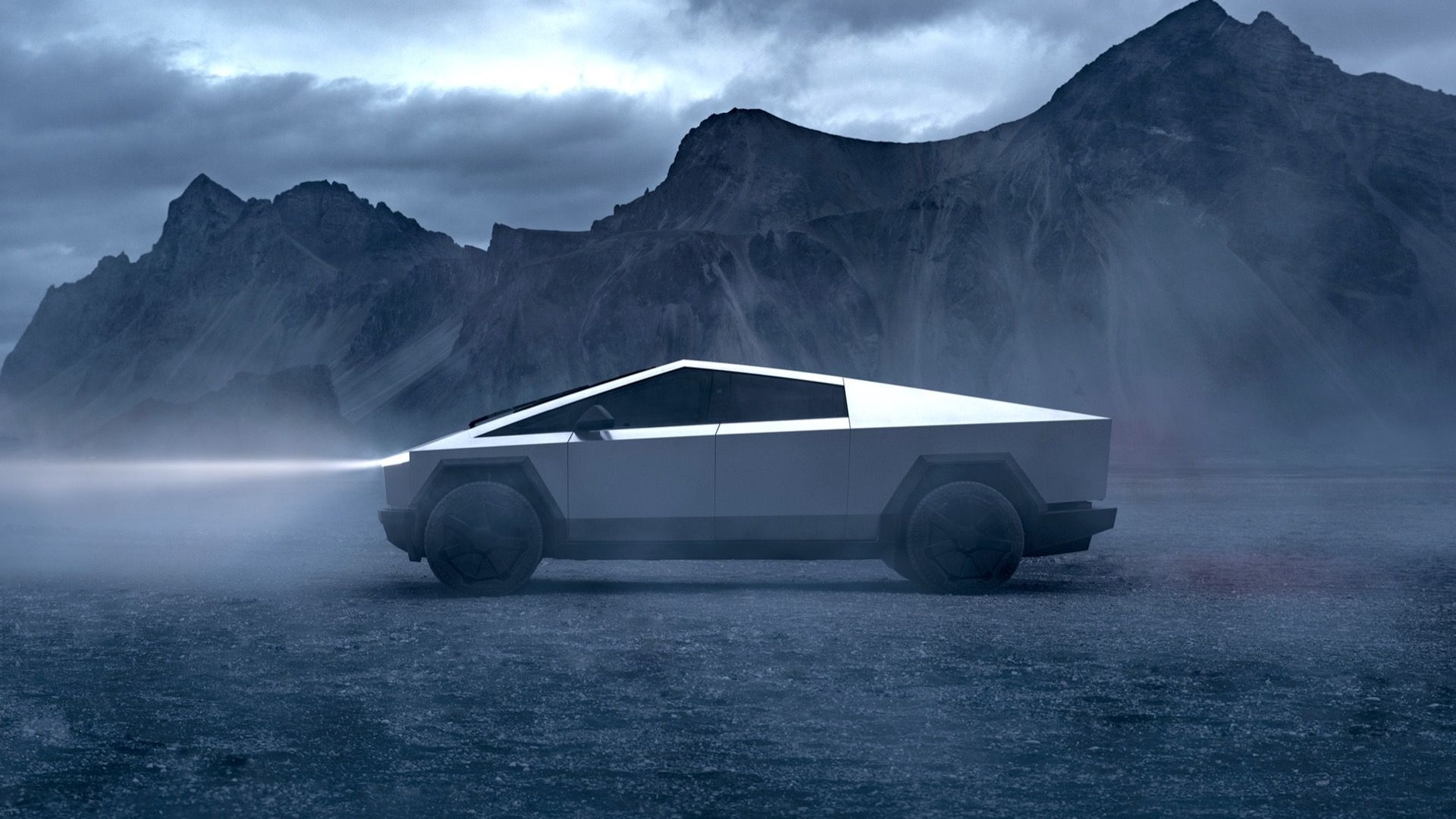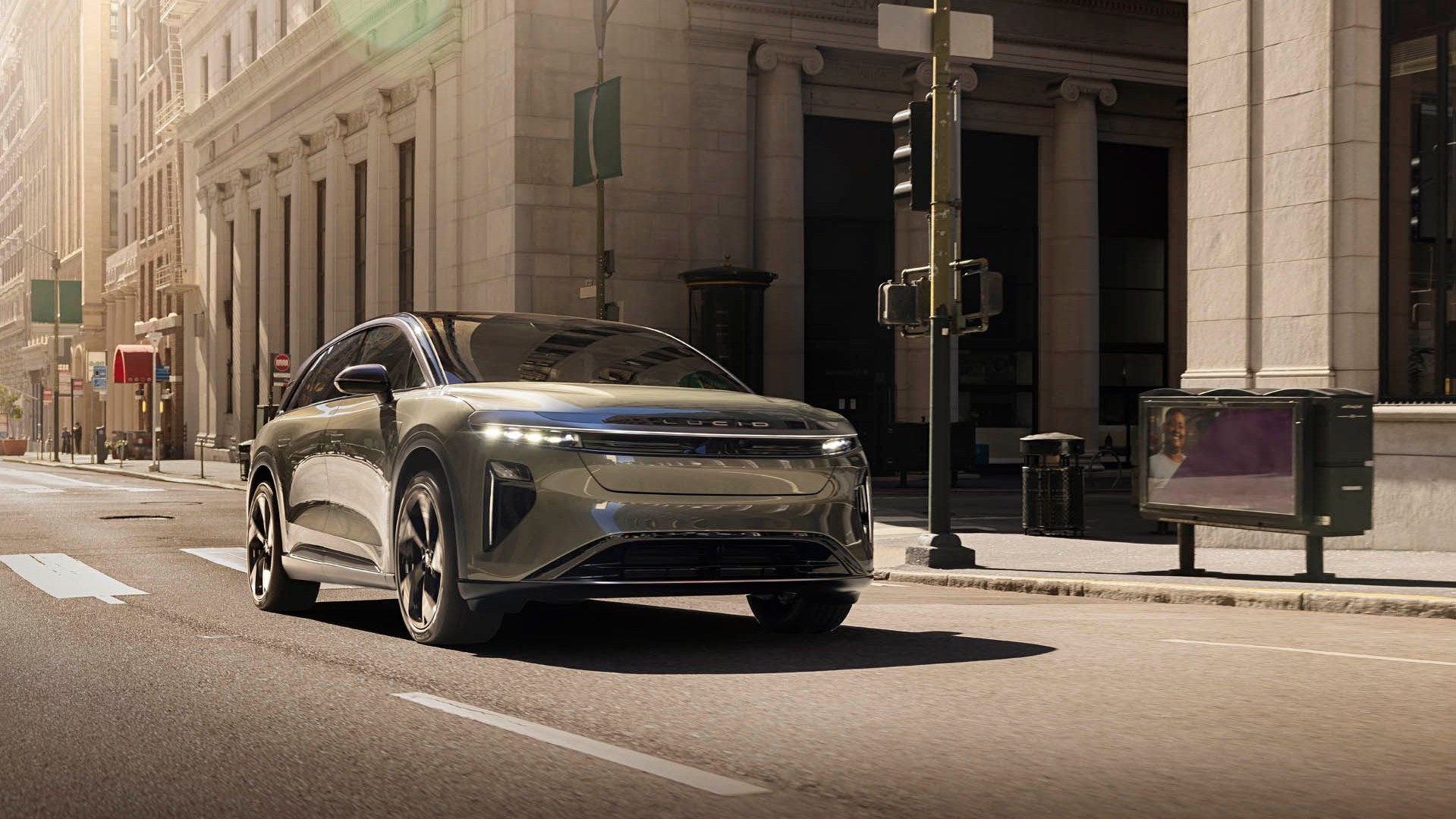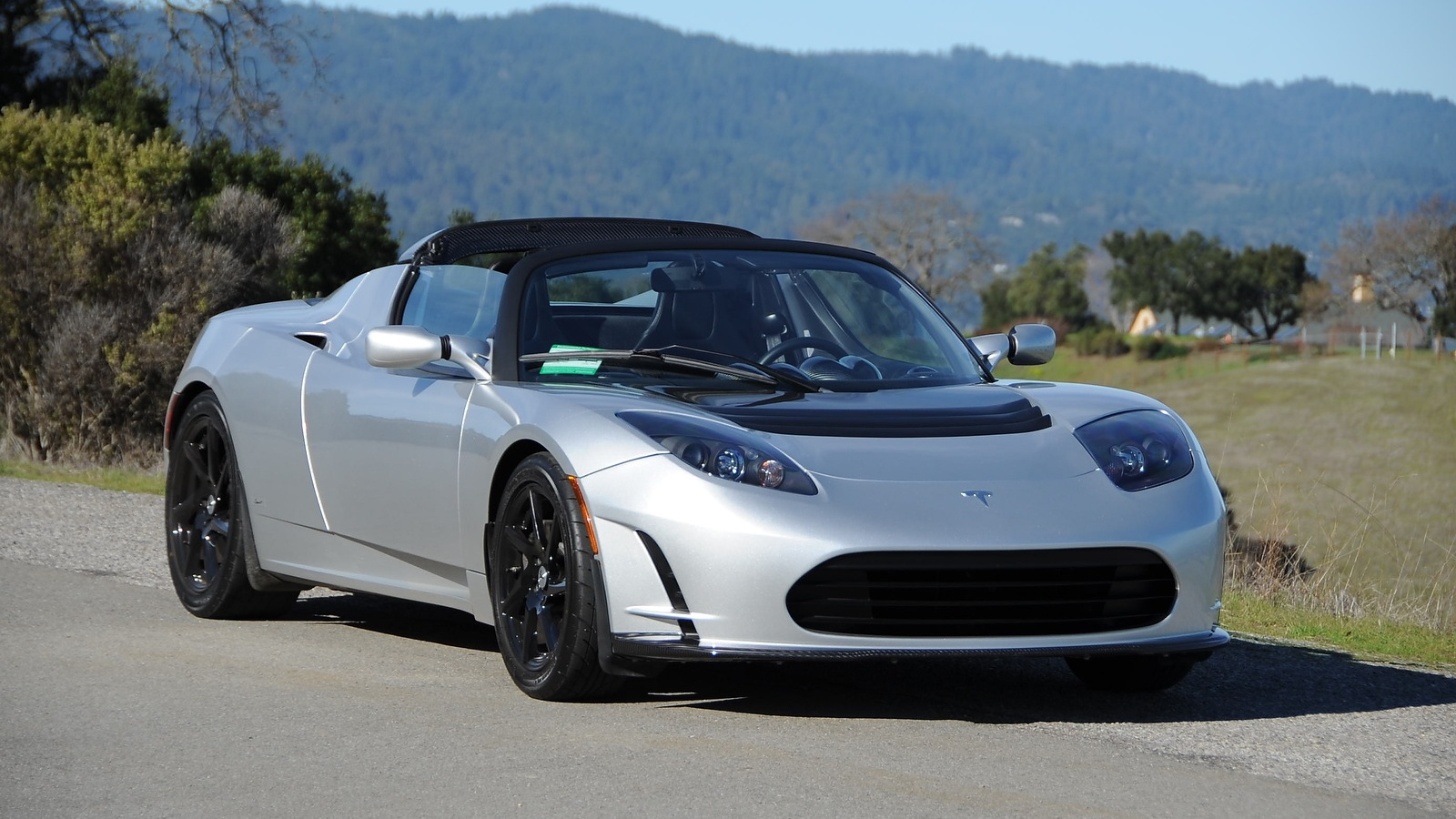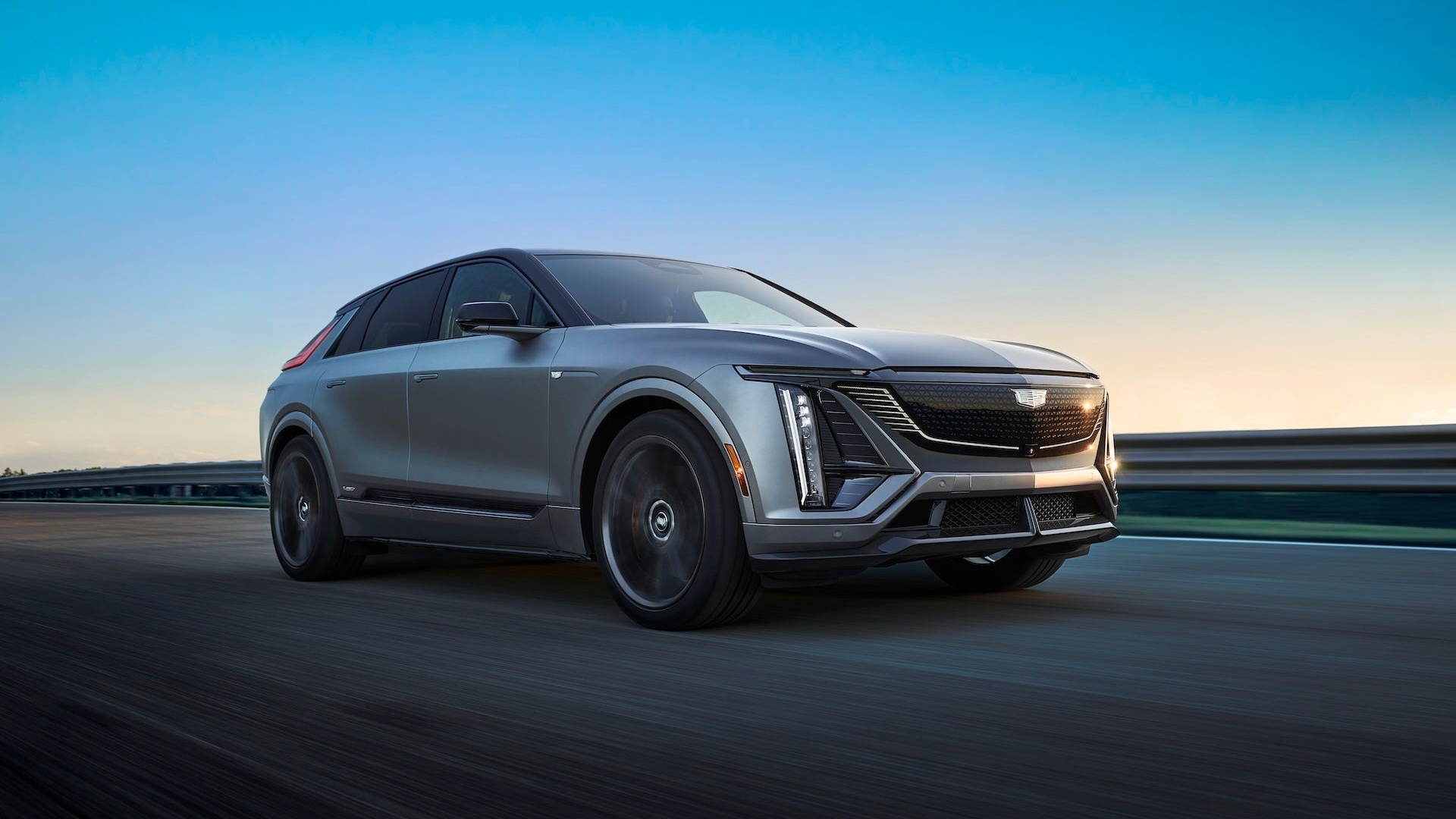The 2023 Lexus RZ electric crossover competes not just against rivals ranging from Nissan through the automotive alphabet to Mercedes, but to electric vehicle startups such as Lucid, Rivian, and Tesla that have raised the bar for electric luxury. So how are Lexus and parent company Toyota positioning the RZ 450e to compete?
In a word, conservatively. Befitting both brands, the conservative approach means that nothing jumps off the page. Starting at $59,650 for the loaded base Premium model, it’s on par with the Genesis GV60 and Cadillac Lyriq. It uses a 71.4-kwh battery pack with 64 kwh of usable power and a max range of only 220 miles. That range trails the competition by 30 to 100 miles. It comes standard with all-wheel drive propelled by two permanent magnet motors, with a 150-kw motor up front and a 80-kw motor at the rear.
It doesn’t stand out, but it doesn’t slink away, either. The RZ 450e demonstrates the brand’s electric potential by debuting new technology rolled out in a characteristically conservative fashion. The brand’s steer-by-wire system paired with a steering yoke instead of a wheel won’t be available at launch, and likely won’t arrive until after the 2025 model year. It will be introduced in other vehicles as the brand transitions to an all-electric lineup by 2030.
2023 Lexus RZ 450e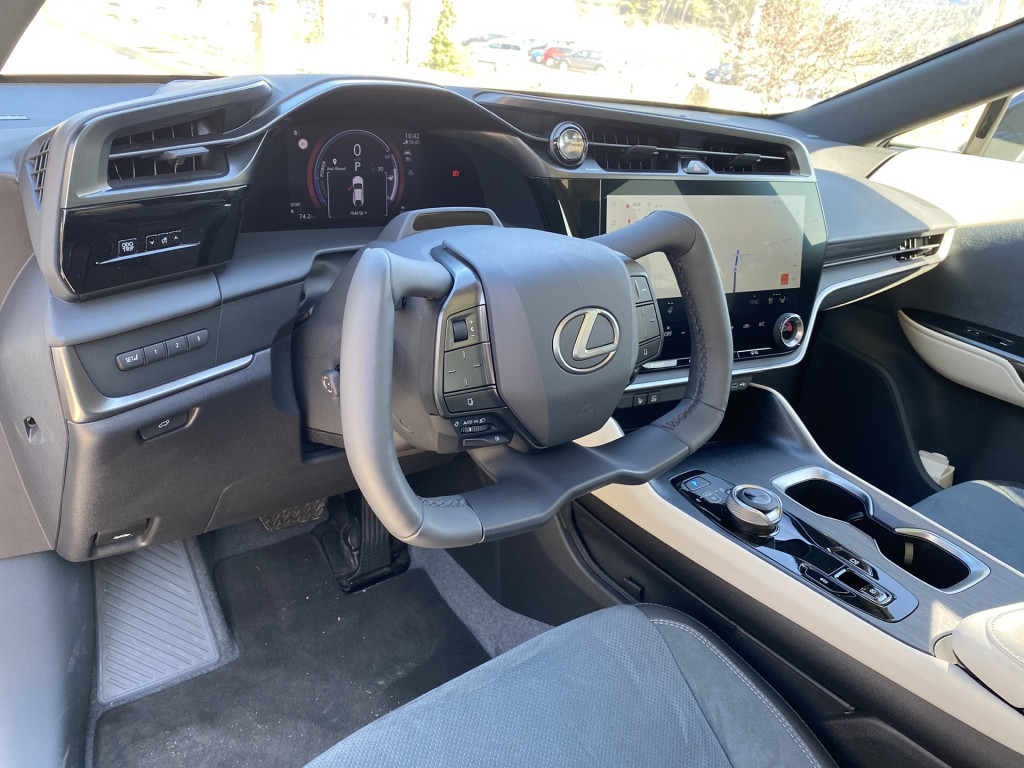
Despite the limited range, the 2023 Lexus RZ 450e shows off those characteristics that make Lexus a Lexus, with solid build quality (take note, Tesla), a smooth and quiet ride, and a calm cabin.
Yet Lexus is merely dipping its toes in the electric waters, and not expecting a shock. Of the initial global run of 30,000 vehicles, only 4,900 units will be sold in the U.S., with China getting the bulk of the run. It seems as if Lexus is testing how many “Lexus loyalists (RX/NX) and Toyota moveups” will follow them along on this electric trial, similar to the limited run of the related Toyota bZ4X.
Lexus fans, take heart: In every measure except range, the RZ 450e is much better—as it should be for the $15,000 upcharge over the 2023 Toyota bZ4X XLE AWD.
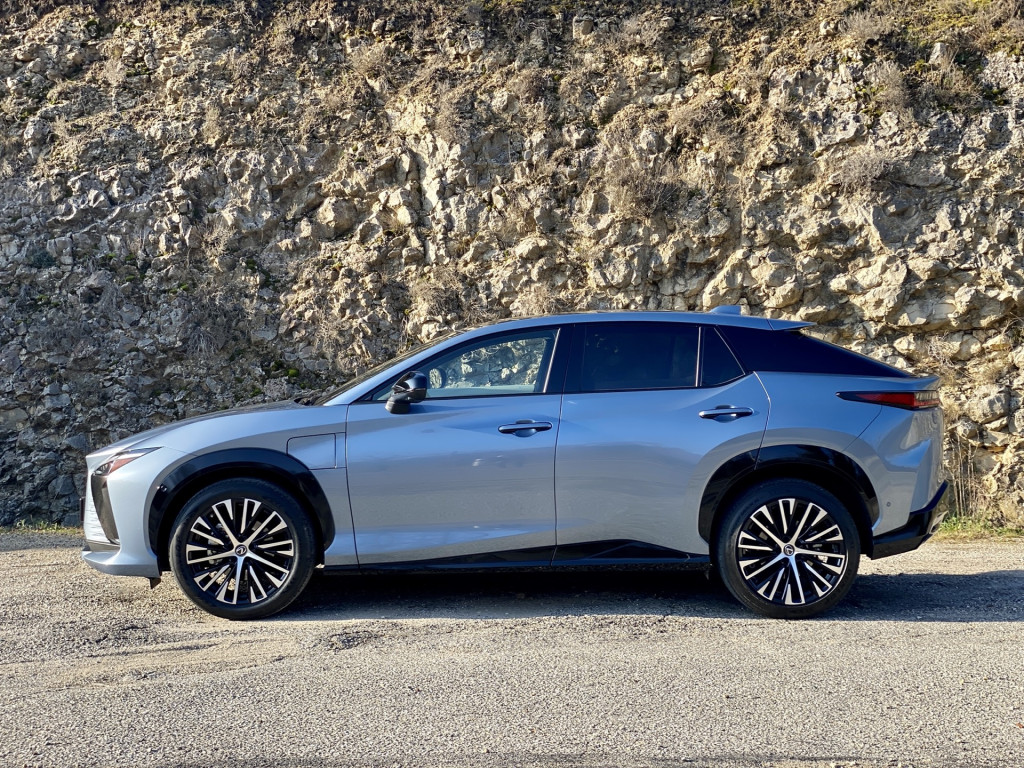
2023 Lexus RZ 450e
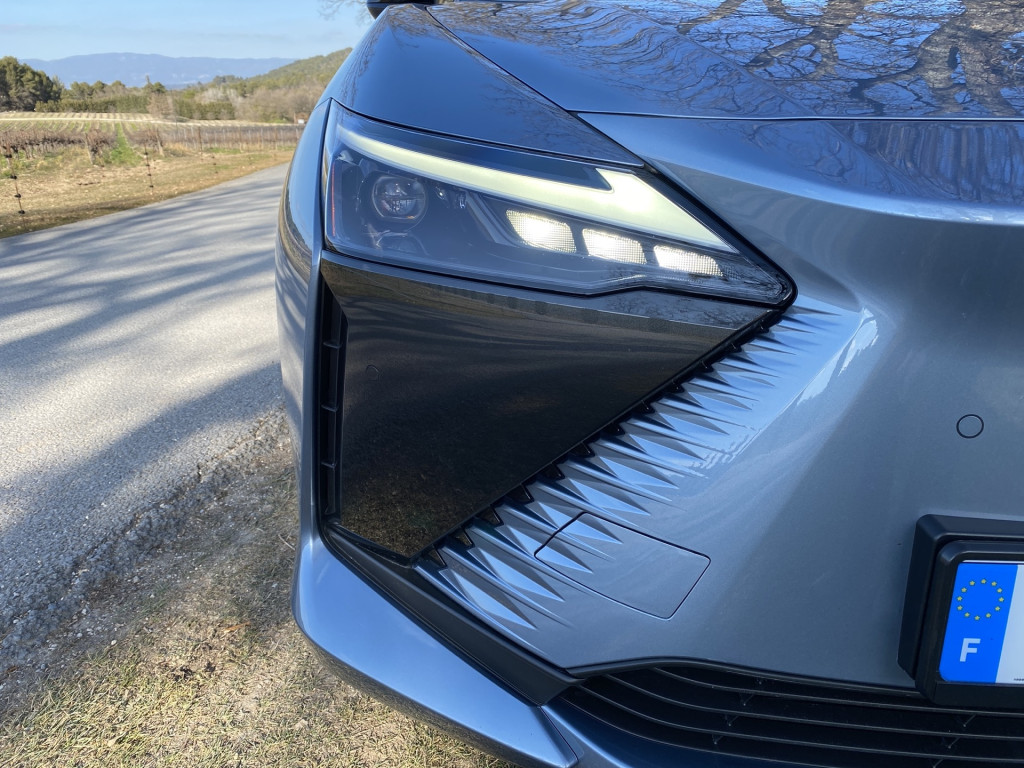
2023 Lexus RZ 450e
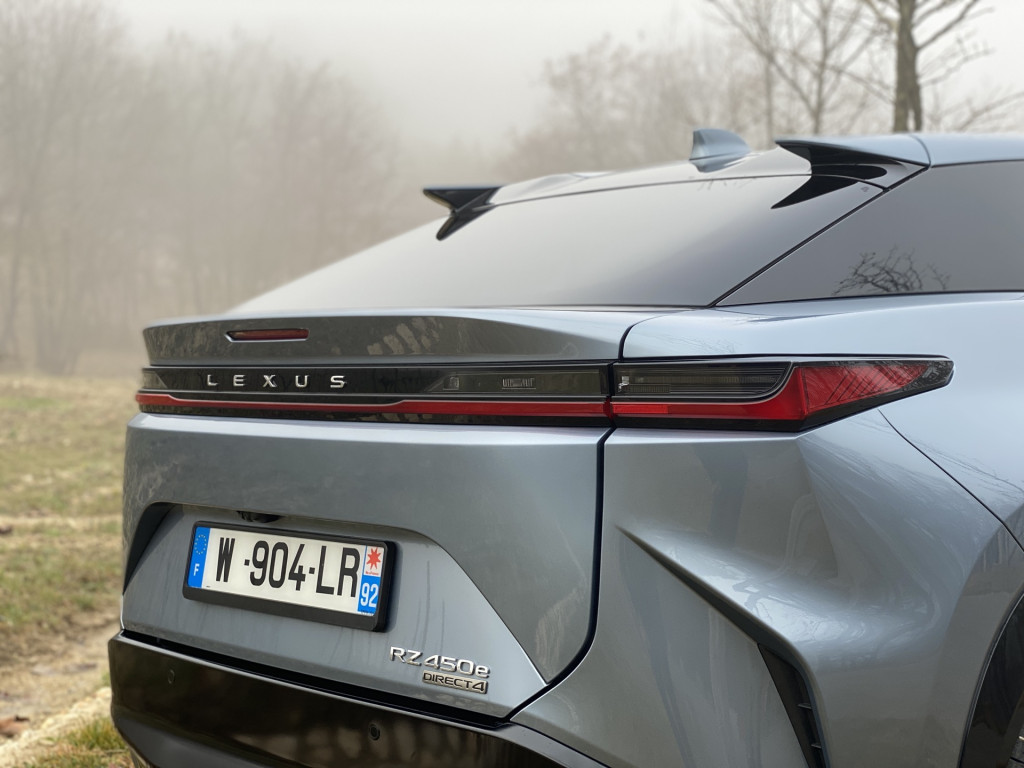
2023 Lexus RZ 450e
What makes the Lexus RZ better than the bZ4X?
It looks more sophisticated than the bZ4X and its raccoon mask of gloss-black plastic that encircles the front fenders. The RZ moves the Lexus design language forward, with all its busy cuts and creases rounded down for more aerodynamics. The hood dips down into a solid spindle grille that stands over lower grille shutters that close when the battery doesn’t need cooling. Twin body lines run in parallel up and over the rear fenders to the floating roof that’s topped with two air-wing fangs in place of a traditional roof spoiler.
The interior marks the biggest difference between the RZ and the bZ4X, and a welcome level of Lexus refinement and taste. A standard 14.0-inch center touchscreen with climate dials and a volume knob host most vehicle controls, giving the spartan dash a starring role. Dark wood trim lines the dash and console for an uncluttered look that pops with two-tone synthetic suede upholstery, such as beige-on-black or blue-on-cream.
The most welcome difference between the two is a familiar one. Lexus wraps the touchscreen and digital instrument cluster into a housing that curves toward the driver and sits in a conventional position with the steering wheel. It’s not recessed to the windshield as in the bZ4X.
More significantly, Lexus has developed two steering systems for the RZ 450e, including a conventional rack and pinion set up with electrical assist and the steer-by-wire system that lacks any mechanical connection to the wheels. Instead of a circular steering wheel, Lexus presents that with a yoke.
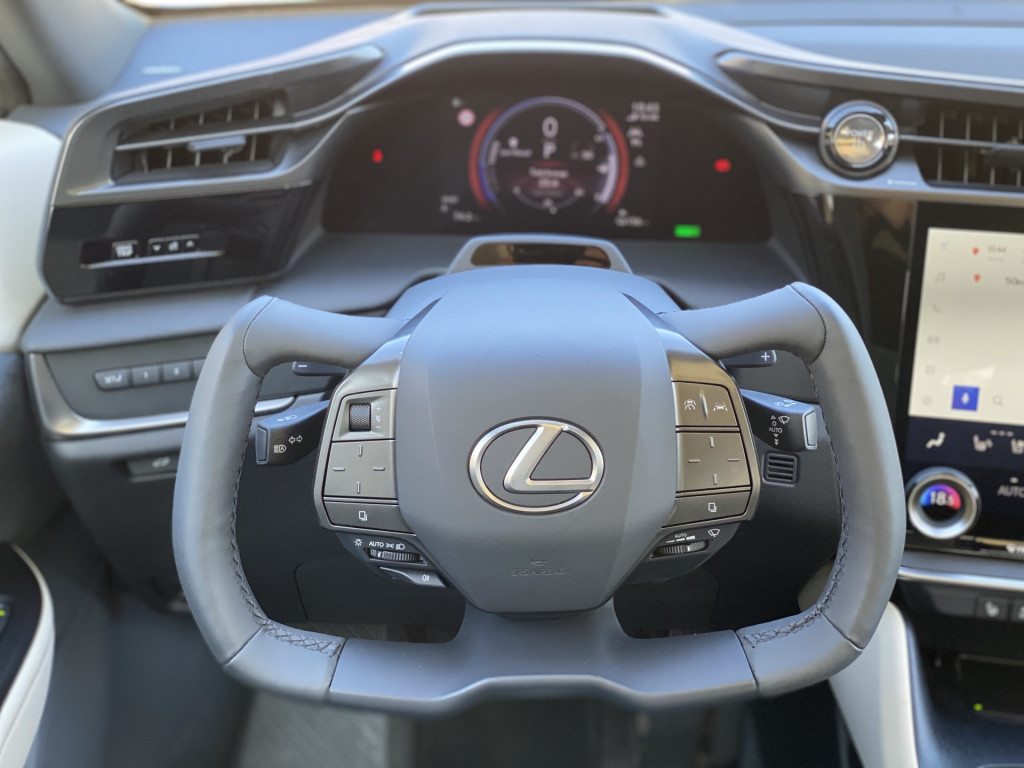
2023 Lexus RZ 450e
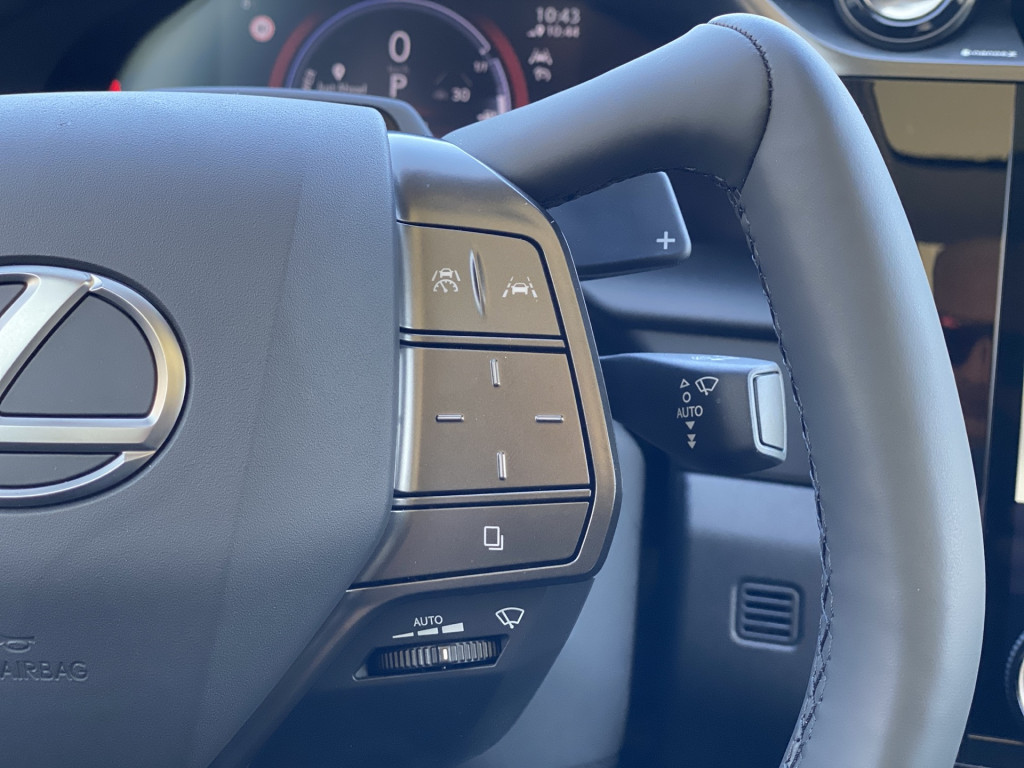
2023 Lexus RZ 450e
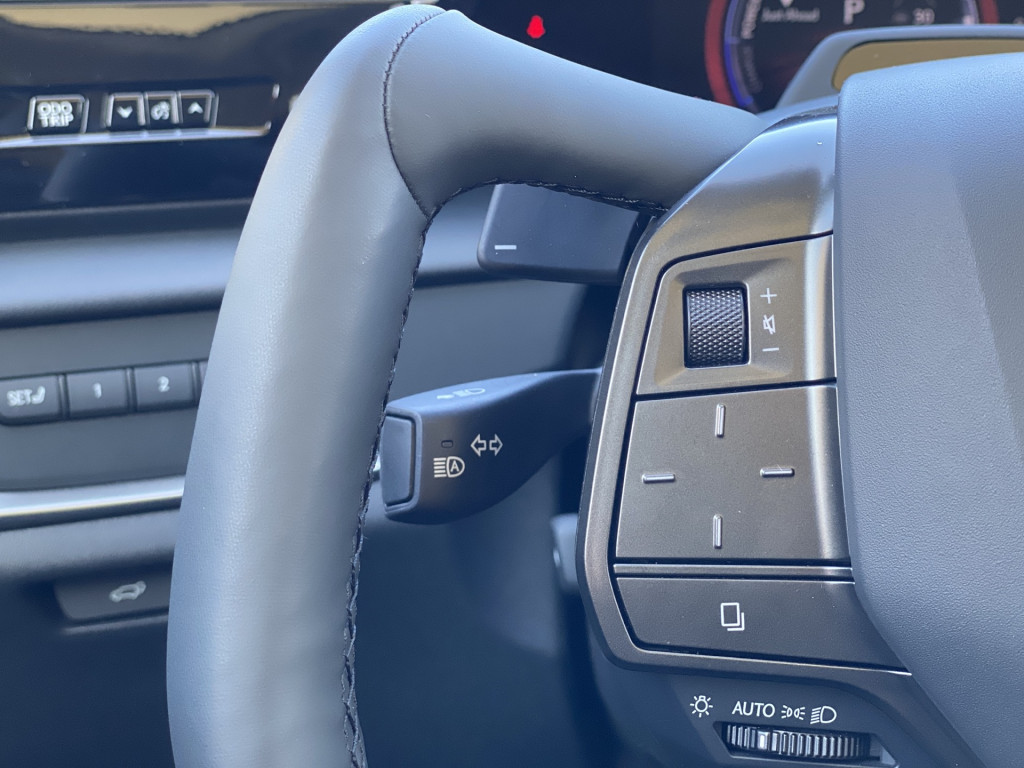
2023 Lexus RZ 450e
Lexus RZ debuts steering yoke and steer-by-wire system
“We don’t call it a yoke,” Leigh Anne Sessions, senior manager of communications for Lexus in the U.S., told media members in a debriefing prior to the global drive event in France in February. “We don’t have an official name.”
In European markets where it will first go on sale in 2025, it’s called One Motion Grip, or OMG. Lexus wouldn’t deign to text-speak in the U.S.
“Steer by wire is one of the core technologies for Lexus moving forward,” Lexus assistant chief engineer Yushi Higashiyama said through a translator. “Acceleration, braking has improved so much that we have to update the steering to create that triad for a direct connection with the vehicle.”
Steer-by-wire won’t launch with the RZ in the U.S., and we can expect it after Europe gets it in typical conservative cadence. A first iteration debuted in RZ prototype drives in May 2022, and it will spread to other electric vehicle applications.
It works. In back to back testing of the two systems, I was surprised to prefer the steer-by-wire system. It’s simultaneously more direct yet requires less effort. It locks at 150 degrees, so if you start with your hands at the nine-and-three position, a left turn maxes out with the left hand at the four and right hand at the 10 positions.

2023 Lexus RZ 450e

2023 Lexus RZ 450e

2023 Lexus RZ 450e
It takes some calibration to adjust to its sensitivity, and it was more sensitive the faster I went, so slight adjustments to the not-yoke angle made for sharp cuts in the road. Roundabouts were a breeze, as was cutting a sharp U-turn; the 18.4-foot turning radius was so brief it seemed as if it were enabled by rear-wheel steering. It wasn’t. It made the hand-over-hand cranking the tiller on the conventional steering rack seem antiquated by comparison.
I picked it up relatively easily and came to appreciate its feel and directness once the novel video game effect of the not-yoke became normal. There’s a greater connection with the road compared to the duller electric-assist rack, and it gave the RZ a liveliness lacking in other Lexus crossovers.
There were drawbacks, however. The not-yoke is its own motorized unit, separate and independent from the steering column. This helps the brand offer it at scale, since you don’t need to develop and test separate right hand or left hand units, and it could serve new levels of autonomy moving forward, Higashiyama said.
All the ancillary controls must be mounted to the yoke unit. It has similar redundant controls that on the left side operate audio and phone commands and on the right side operate the cruise control and other vehicle functions. The icons appear in the head-up display, not on the steering pad panel, same as in the redesigned Lexus NX and Lexus RX. That’s fine. Under those pads are a headlight dial on the left side, and windshield wiper speed setting on the right.

2023 Lexus RZ 450e
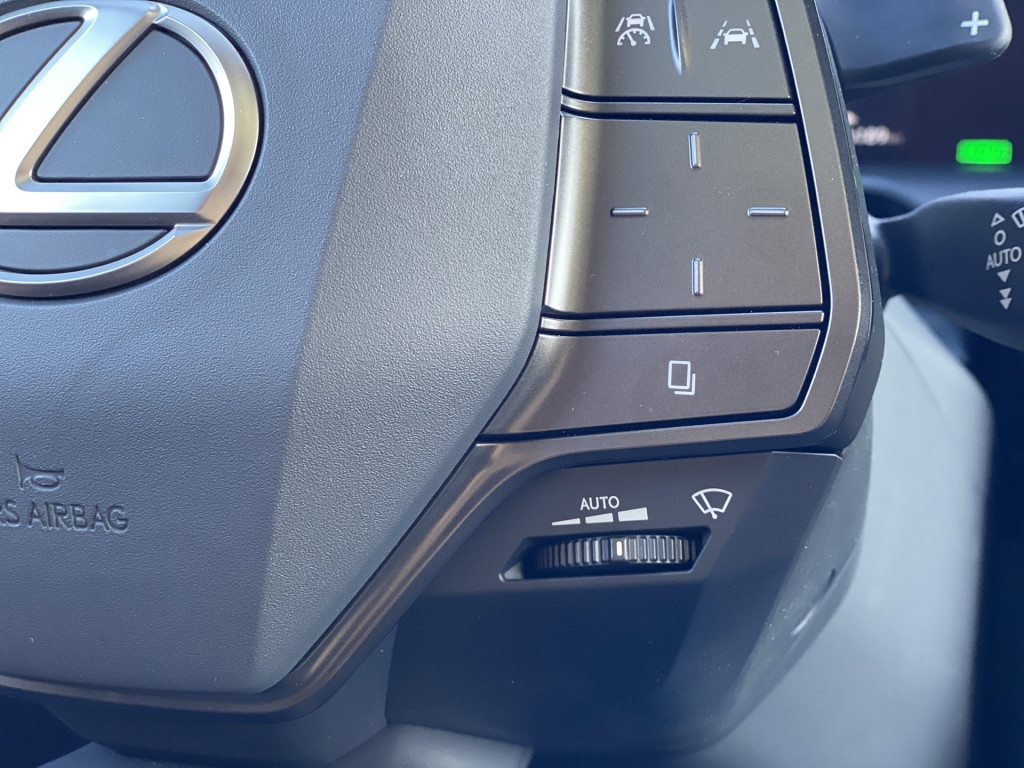
2023 Lexus RZ 450e
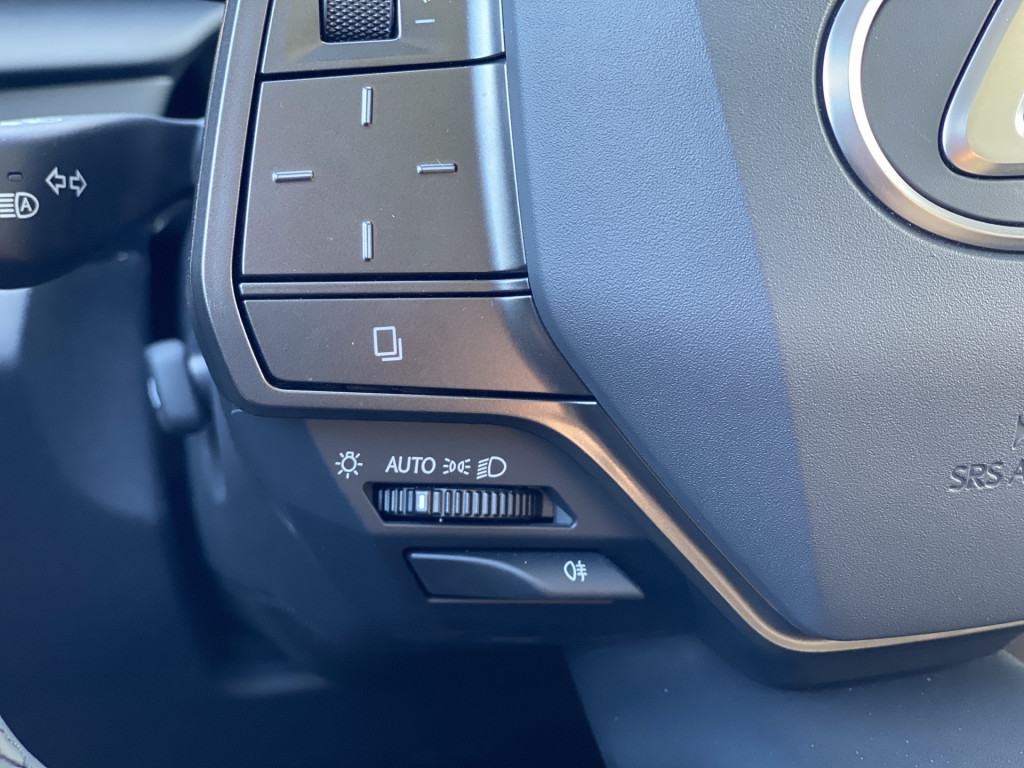
2023 Lexus RZ 450e
The stalks on the not-yoke are little stubs, so they don’t hit your thigh while turning. On the conventional steering system those stalks are mounted to the column, so they stay fixed as the steering wheel moves. The right stalk has more wiper controls, and the stubby left stalk holds the brights and indicators.
Fortunately, the skies were clear and it was daylight during our drive thru Provence, so the conditions didn’t demand on-the-spot testing. The only issue I had with the not-yoke were the diminutive regenerative brake paddles, which were more like the plus/minus toggles on the back of a game controller than the actual paddles on the conventional steering wheel. The layout was too tight, and I accidentally triggered the brights when I meant to reduce the regen setting.
“We have yet to see the final iteration of this,” Moe Durand, senior manager of Lexus Global Communications, assured me.
This big development dwarfs the otherwise tentative approach of the RZ 450e. The four regen brake settings skip the B setting of other Toyota/Lexus hybrids, but even in the strongest setting it lacks the grab of other electric vehicles. That maintains its smooth character that Lexus expects will help usher Lexus fans from combustion to electrification. It can nearly come to a stop, but Lexus expects drivers to use the actual brake pedal to complete braking actions.
2023 Lexus RZ 450e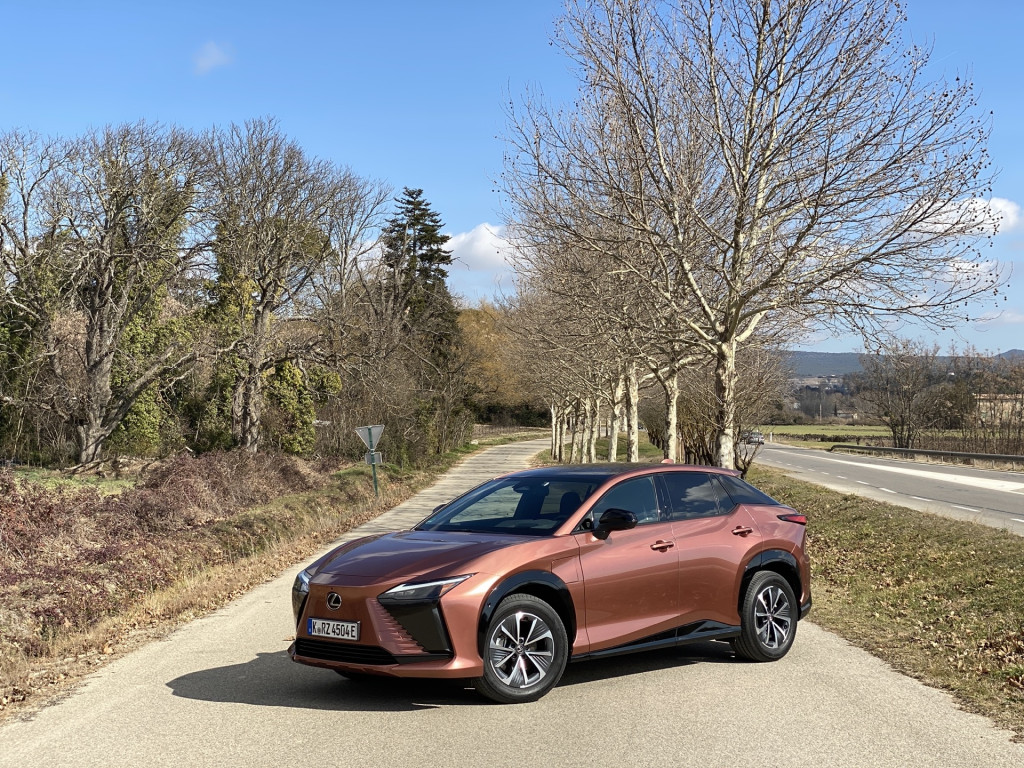
Is the Lexus RZ quick?
The performance of the RZ 450e far outshines that of the bZ4X. It uses the same permanent magnet 80-kw motor for the rear axle, but a larger 150-kw motor up front. System output is rated at 308 hp and estimated at 320 lb-ft of torque, yet it lacks the surge off the line of rival electric crossovers, yet it has enough hustle to scoot to 60 mph in 5.0 seconds, so I was hardly left wanting.
A lower ride height of 2.9 inches than the RX and a slightly lower ground clearance (7.9 inches to 8.2 inches in the RX) combine with a lower center of gravity to give the RZ more agility than either the RX or NX. But it still has to contend with a curb weight of about 4,600 pounds, depending on the base Premium or loaded Luxury grade. There’s still body lean in turns, despite front struts retuned from the bZ4X and a multilink rear suspension that uses reactive dampers that are a step between passive and adaptive ones. It won’t be mistaken for a performance crossover, but the balance of agility and comfort will be welcome by any Lexus fan.
A more sophisticated development is the traction control system. The power split between the axles defaults to a 60/40-front bias, but it can shift all to the rear motor at times. Coming into turns, the bias shifts more to the front to manage understeer, and out of turns, the bias shifts 20/80 to the rear axle for better traction and acceleration. It’s understated, yet it made the many roundabouts more fun than annoying, and overall it handled with more assurance than other Lexus crossovers.
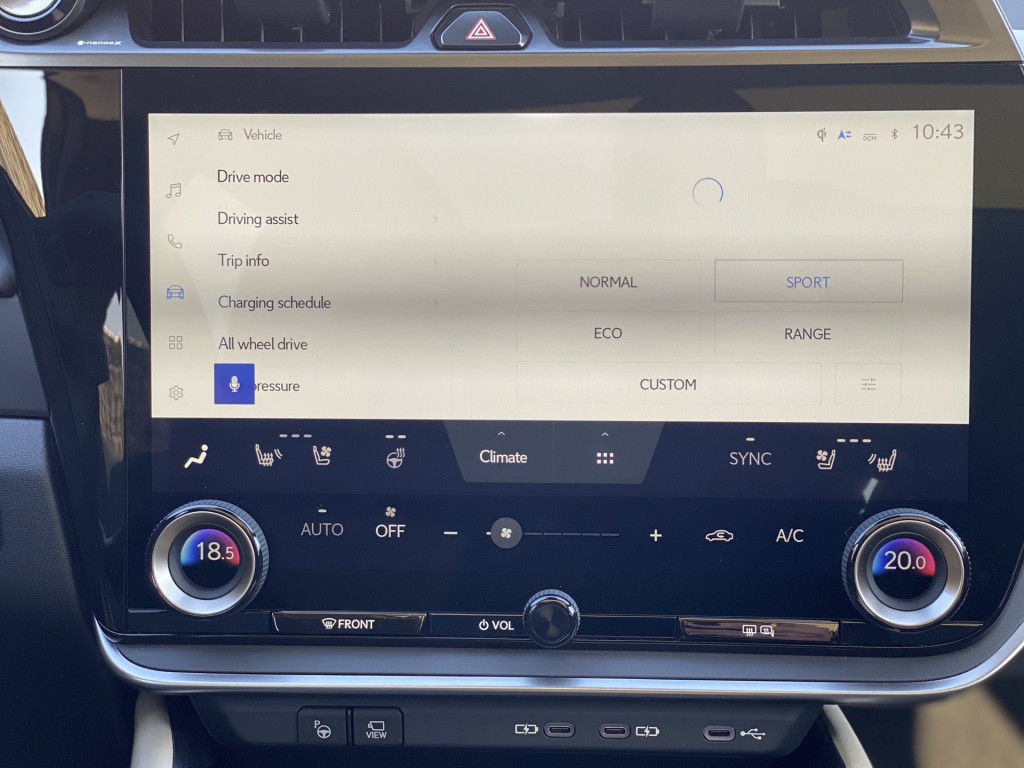
2023 Lexus RZ 450e
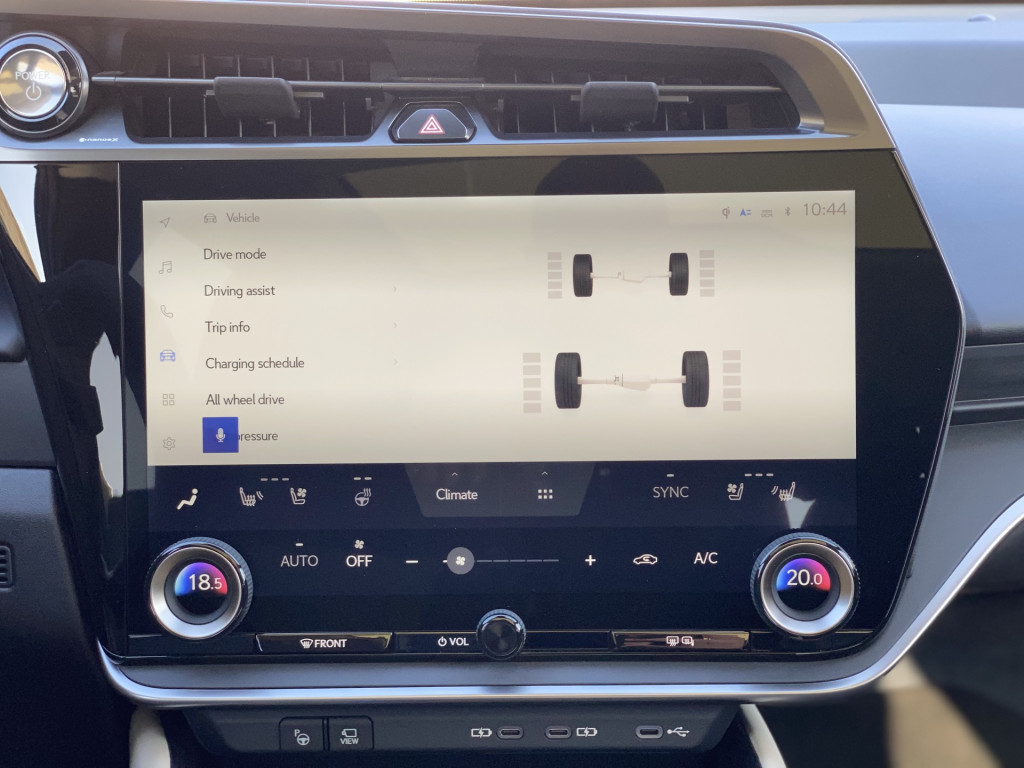
2023 Lexus RZ 450e
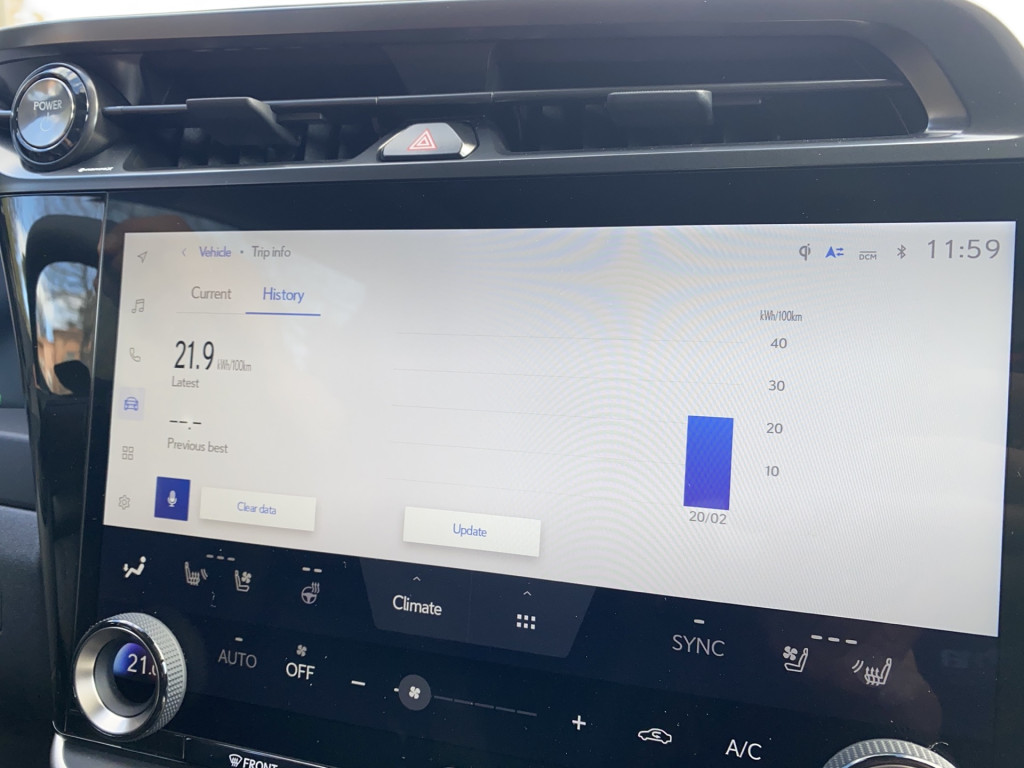
2023 Lexus RZ 450e
Five drive modes adjust throttle and steering response, but the buttons are at least two touches away in the touchscreen. It’s shaky to adjust on the fly; a button in the console would make for a more user-friendly experience. Sport, Normal, Eco, and Custom modes provide the usual throttle nuances, with Sport lighting up the cluster red.
A new Range mode marks a more interesting development. It’s a step more efficient than Eco and appeals to hypermilers or those eking out more miles with their last bit of juice. Relying solely on the rear motor, with limited traction response, it softens the throttle, shuts off the climate control, and it defaults to the wild excess of Eco mode when the car exceeds 62 mph. All things equal, it provides a 5% to 10% boost in range compared to Eco mode, according to Lexus.
Other range savers include a standard heat pump and radiant knee heaters up front that pair with the heated front seat function. Together, they provide warmth to front drivers without taxing the battery and range on cold starts, as it would by blasting the climate control.
Despite this range-consciousness, the RZ keeps a big head-scratcher from the bZ4X. There’s no battery percentage readout in the cluster. Instead, it shows the inaccurate range meter that fluctuated from 205 km to 280 km left if I turned off the heat.
When asked why, Higashiyama said, “Good question.”
Perhaps with a software update.
The 2023 Lexus RZ 450e is a good car, priced right, and it’s a necessary step forward for Lexus. But its tentative approach will limit its appeal. With the standard 18-inch wheels, the 2023 Lexus RZ has a range of 220 miles but an above average efficiency rating of 3.2 miles per kwh. It doesn’t come close to the Tesla Model Y, but it’s more efficient than the 2.6 miles/kwh in the Cadillac Lyriq—even though the Lyriq’s bigger pack results in 312 miles of range. The Genesis GV60 has up to 248 miles of range and gets 2.8 miles per kwh.
The 20-inch wheels on the RZ 450e take a big bite out of efficiency, lowering the range to 196 miles, and 2.8 miles per kwh.
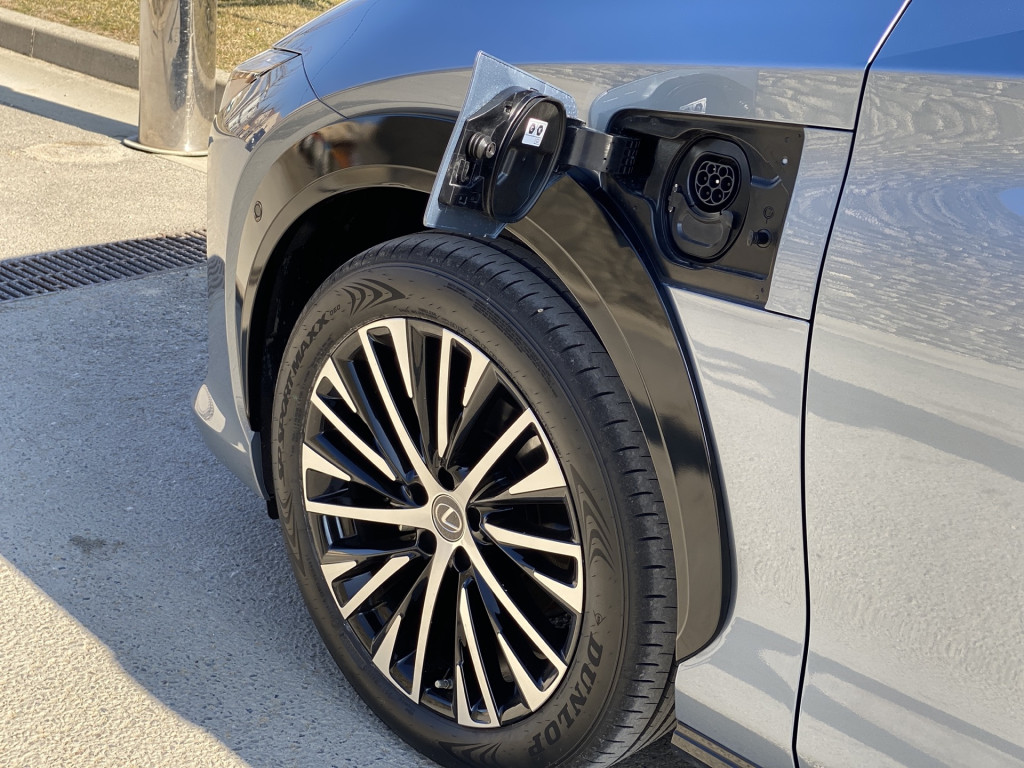
2023 Lexus RZ 450e

2023 Lexus RZ 450e
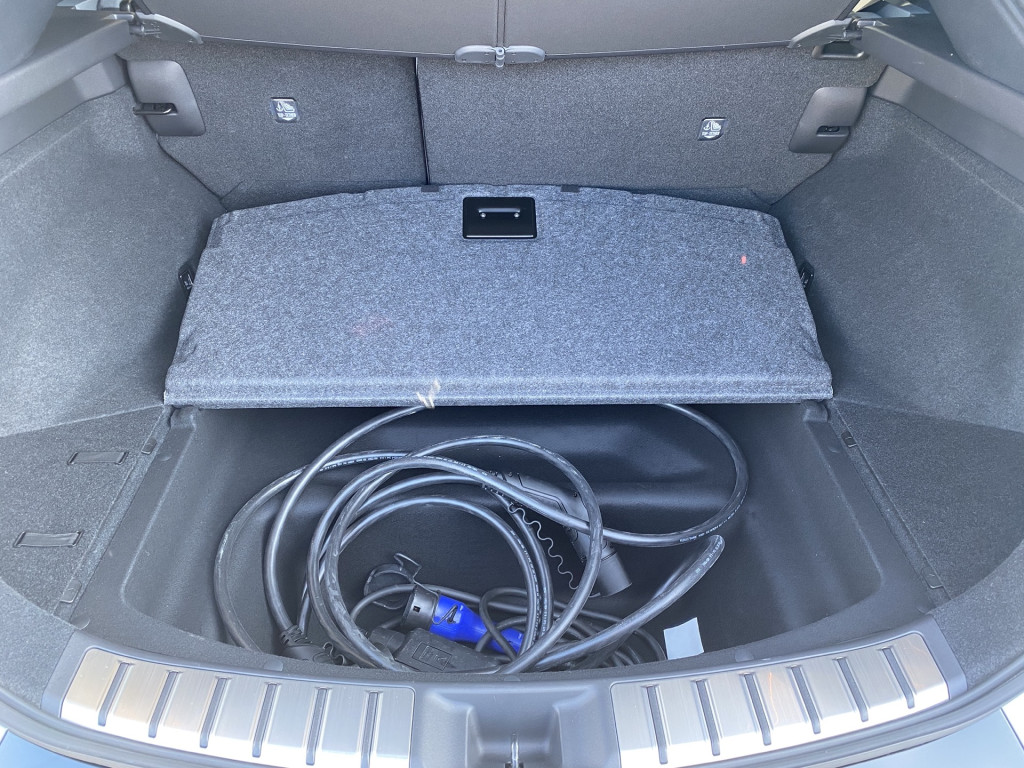
2023 Lexus RZ 450e
How fast does the Lexus RZ charge?
The RZ comes with a 7.0-kw onboard charger, allowing you to charge to full with a 240-volt home charger in 9.5 hours, Lexus estimates. The brand has a partnership with Qmerit to install a ChargePoint 240-volt charger at home.
On the go, a 150-kw DC fast charge connector can get the battery to 80% in 30 minutes.
There are no DC fast-charging deals wrapped in, but a new Lexus Reserve program addresses potential anxieties by providing 30 free days of Lexus hybrid or gas car rentals in the first three years of RZ ownership.
Like the RZ itself, it’s a hedge, a just-in-case, to see how this whole electric thing plays out.
